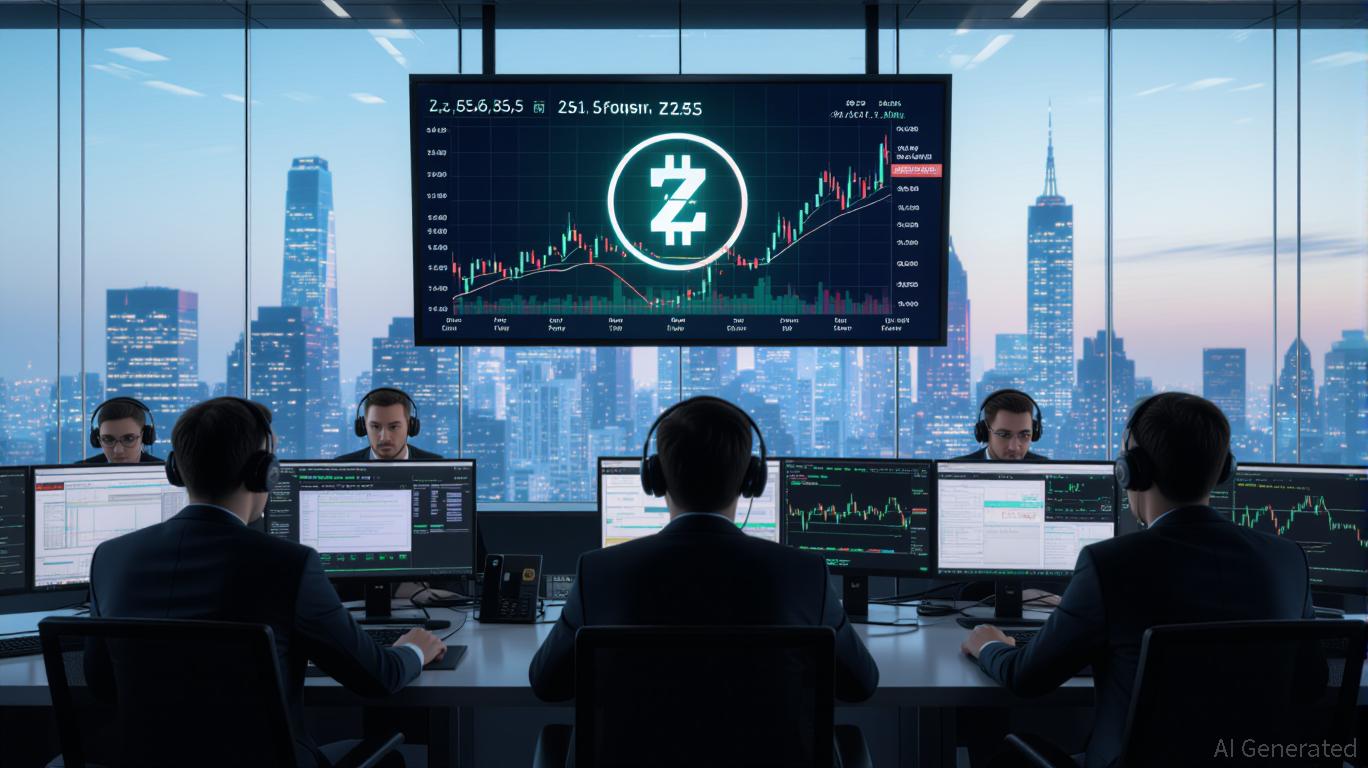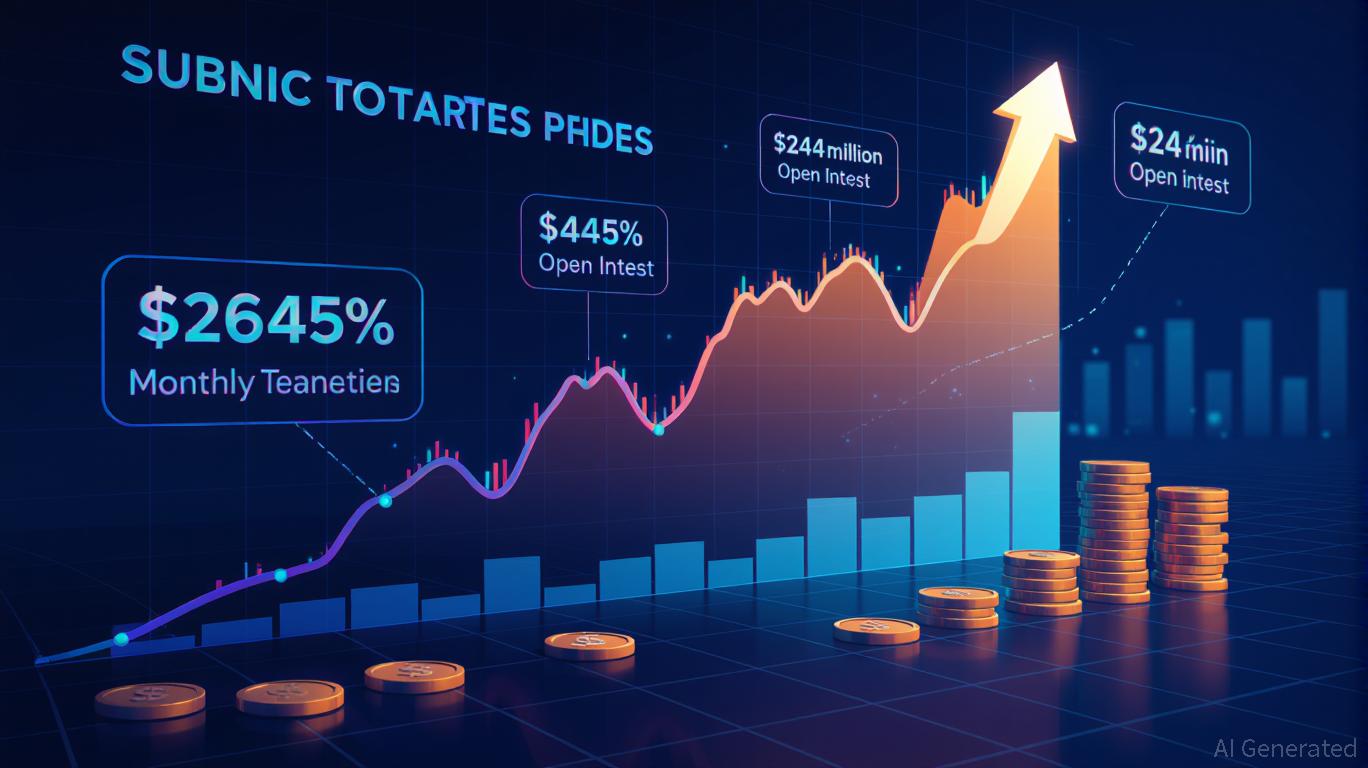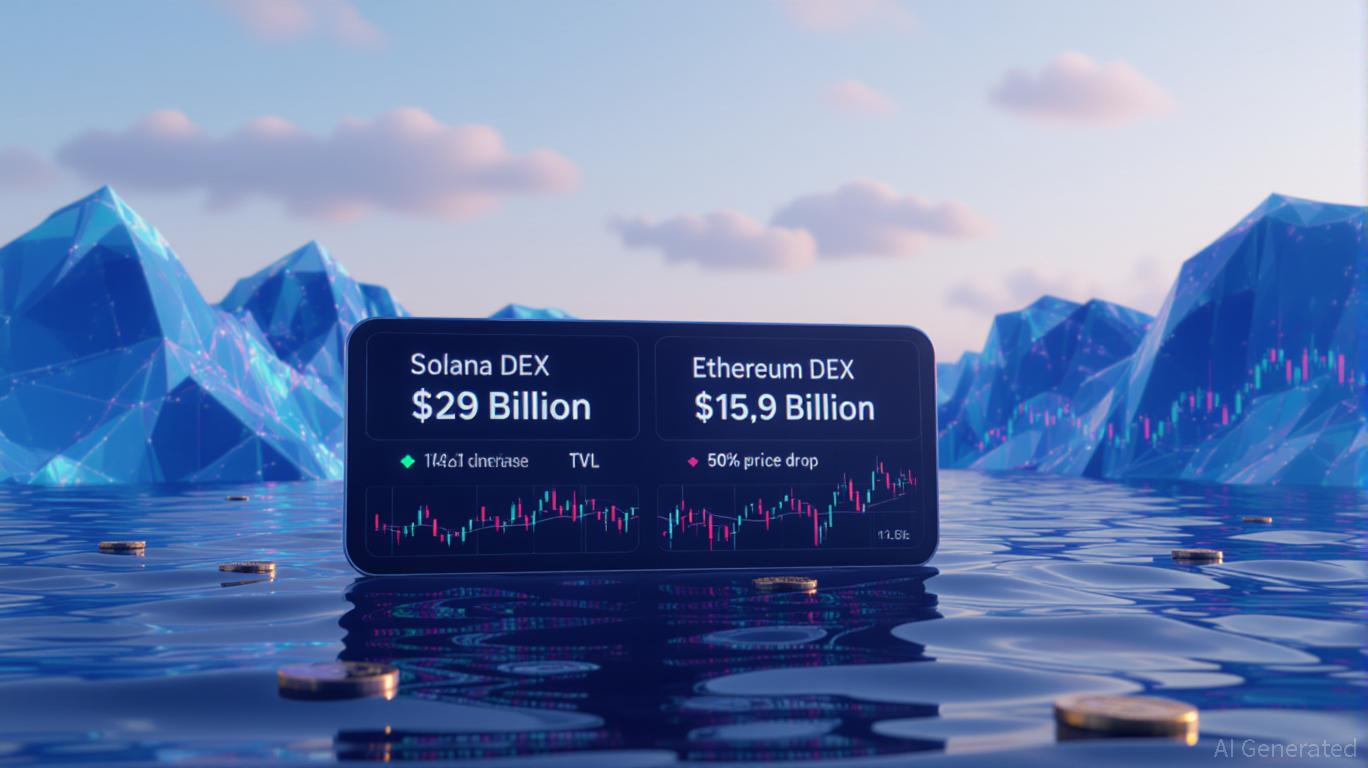Bitcoin drops by 1.48% as American Bitcoin raises its holdings to 4,004 BTC
- Bitcoin fell 1.48% to $101,920.89 on Nov 8, 2025, amid a 7.11% monthly decline despite a 8.8% annual gain. - American Bitcoin Corp (ABTC) boosted its BTC treasury to 4,004 coins ($415M), leveraging mining and spot buys to align shareholder interests. - Trump family's $800M crypto ventures and ABTC's "Satoshis Per Share" metric highlight growing institutional Bitcoin adoption. - BlackRock's $127M Bitcoin ETF outflow and whale movements like Owen Gunden's $372M transfer underscore market volatility and lev
On November 8, 2025,
The day was marked by significant developments from Nasdaq-listed
ABTC’s approach blends large-scale mining operations with targeted spot acquisitions, aiming to align shareholder value with Bitcoin’s growth cycles. The company has also introduced a unique metric called “Satoshis Per Share” (SPS) to provide greater clarity regarding its Bitcoin assets. This strategy has attracted attention from both institutional and individual investors, reflecting a broader trend of corporations diversifying into digital currencies.
The involvement of the Trump family in
ABTC’s announcement coincided with news that BlackRock clients had withdrawn $127 million from the company’s Bitcoin ETF, prompting speculation about institutional attitudes toward the asset. While this outflow may indicate a shift in institutional positioning, the overall market picture remains mixed, with Bitcoin maintaining levels above $102,000. This recent period of consolidation follows a stretch of heightened volatility, during which Bitcoin reached record highs in early October before pulling back due to large holder sales and broader economic factors.
Bitcoin’s ability to remain stable in these conditions points to robust underlying demand and continued institutional adoption. Blockchain data also shows increased activity from major holders, such as Bitcoin whale Owen Gunden, who moved 3,600.55 BTC (roughly $372 million) on November 8. Of this amount, 500 BTC has already been deposited to Kraken, with the rest expected to be transferred soon.
Gunden’s transactions are part of a larger pattern of whale activity and leveraged trading tactics. For example, a prominent whale with a perfect trading record recently closed a long position and opened a short on 90.63 BTC at 40x leverage, amounting to a notional value of about $9.24 million. These actions underscore the significant impact that large traders have on market liquidity and sentiment, especially in highly leveraged environments.
Backtest Hypothesis
To evaluate how technical indicators might influence trading, a backtest was performed on Bitcoin’s price action after reaching fractal highs (resistance) and fractal lows (support) between January 1, 2022, and November 8, 2025. The study assessed cumulative returns, success rates, and ideal holding periods to gauge the effectiveness of strategies based on these price points.
The backtest revealed that fractal highs generally serve as short-term resistance. When Bitcoin touched a fractal high, prices tended to revert in the short run, with median returns over 1 to 10 days ranging from -0.6% to -0.3%. The win rate for these trades was typically below 50%, and statistically significant negative returns were observed during the first week, suggesting that selling into rallies after a fractal high could provide a modest advantage.
Conversely, fractal lows showed a slight upward tendency. Price rebounds were common, with a one-day gain of about +0.8% and a 62% win rate. However, the benefit over simply holding Bitcoin faded after two weeks, and the 30-day cumulative return of +2.7% was lower than Bitcoin’s average gain of +3.3% for similar periods. This indicates that while fractal lows may offer short-term entry points, their usefulness is limited to brief timeframes.
In summary, fractal highs and lows can be useful tactical tools within broader trading strategies. Traders might consider tightening stop-losses near fractal highs to manage risk or increasing positions near fractal lows to take advantage of potential rebounds. Nevertheless, relying solely on these signals is unlikely to generate substantial long-term returns, highlighting the importance of combining them with other indicators and market analysis.
Disclaimer: The content of this article solely reflects the author's opinion and does not represent the platform in any capacity. This article is not intended to serve as a reference for making investment decisions.
You may also like
ICP Network's Expansion: Reaching New Milestones in Blockchain Foundations and Business Integration
- ICP's AI tool Caffeine drove a 56% price surge, attracting investors and developers with scalable blockchain infrastructure. - Enterprise partnerships with Microsoft , Google, and medical/industrial IoT projects highlight real-world adoption. - Despite 22.4% DApp decline and volatility, ICP's 100x fee surge and Chain Fusion protocol signal resilience and growth. - Speculation about Coinbase Launchpad inclusion and cross-chain swaps with major blockchains position ICP as a decentralized finance bridge.

Zcash Halving and Its Effects on Cryptocurrency Value: The Role of Limited Supply and Shifts in Investor Actions After Halving
- Zcash's 2024 halving reduced block rewards by 50%, tightening its deflationary supply model to 4% annual inflation by 2025. - Transition to proof-of-stake (PoS) lowered energy costs and attracted institutional investors, stabilizing network security. - ZEC surged 92% post-halving in 2025, driven by scarcity narratives, regulatory clarity, and Trump-era crypto optimism . - 2028's next halving will further cut rewards to 0.78125 ZEC, potentially accelerating price growth amid evolving crypto adoption. - Sc

Zcash (ZEC) Price Rally in Late October 2025: Impact of Institutional Adoption and Focus on Privacy-Driven Applications
- Zcash (ZEC) surged 266% in late October 2025, peaking at $382, driven by institutional interest and demand for privacy-focused crypto amid rising surveillance. - Open interest in Zcash futures hit $244M, reflecting growing speculative and institutional capital allocation to privacy-centric assets like ZEC. - Helius CEO Mert Mumtaz predicted ZEC could surpass XRP in market cap, framing privacy as a "moral duty" against compliance-driven tokens. - Zcash's zk-SNARKs technology and cross-chain integrations (

Why the Latest 50% Decline in SOL Price Presents a Prime Chance to Reenter
- Solana's 50% price drop reflects broader market pressures but highlights structural strengths like institutional adoption and DeFi innovation. - Robust on-chain metrics show $29B DEX volume and $10.3B TVL, outperforming Ethereum despite stablecoin depegging challenges. - U.S. Solana ETFs attracted $200M+ inflows, signaling institutional confidence in long-term value despite crypto market volatility. - Bullish social sentiment and Solana 2.0 upgrades position it to weather "altcoin winter," creating asymm
